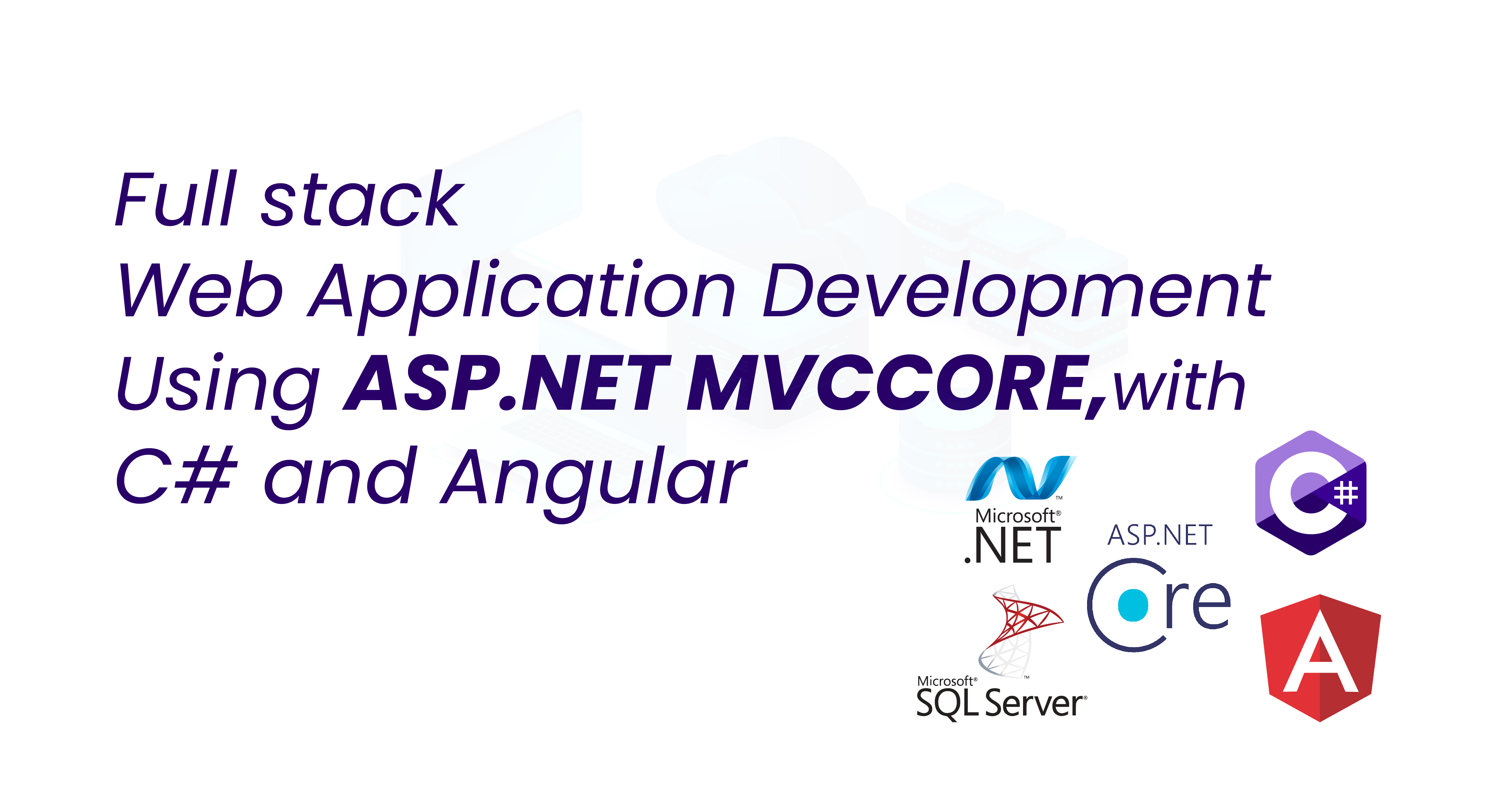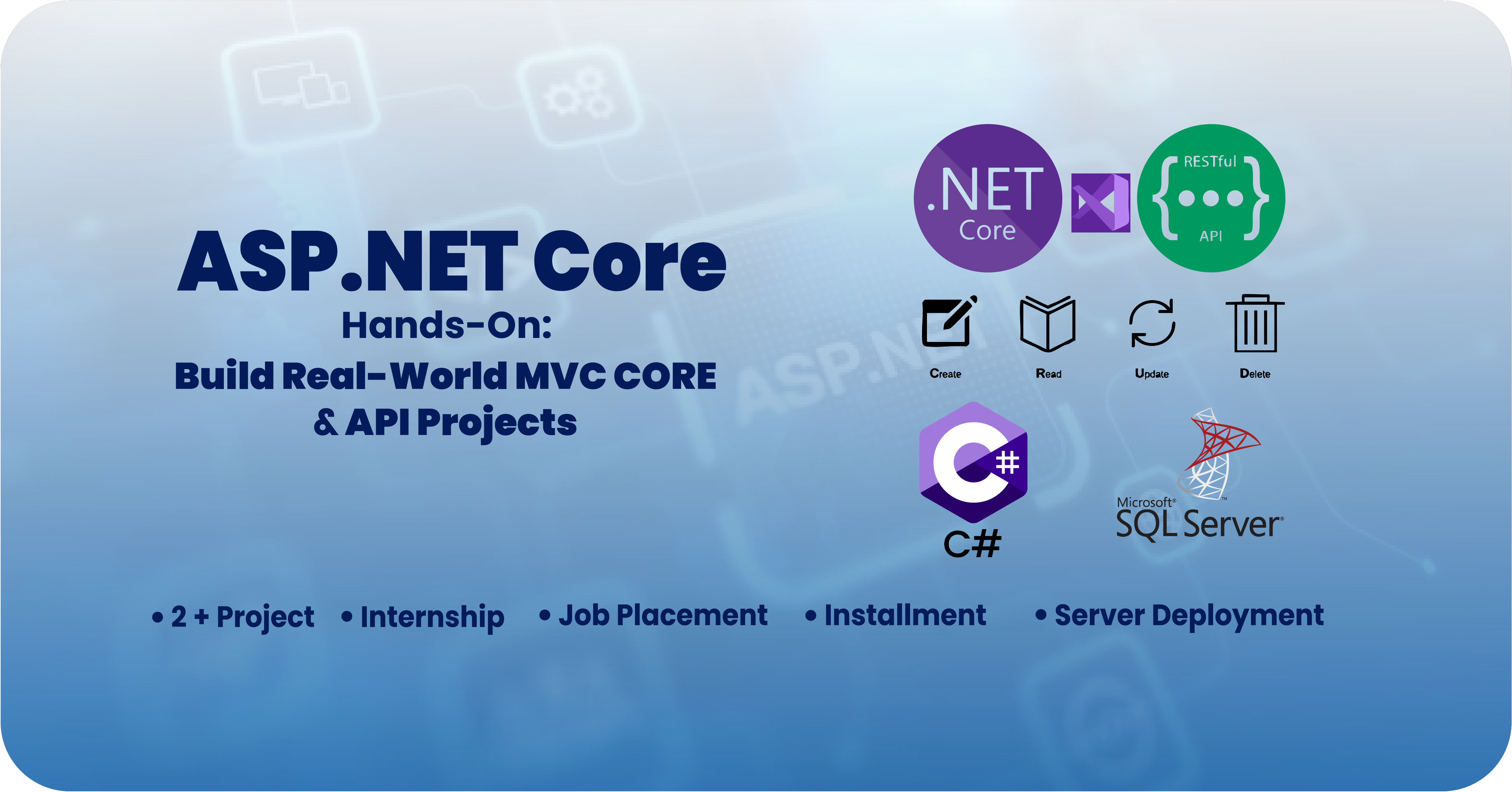Real World App Using ASP.NET Core WEBAPI& ANGULAR

Course Information
Content
36+ Lessons
Duration
72 Hours
Resources
pdf book,materials
Quiz
Each module
Facilities
Problem solving,Certificate,Internship
FAQ
Can't find the answer you're looking for? Feel free to
get in touch.
Is Angular a multi platform?
Angular is a cross-platform framework
The only thing which is required by Angular to be executed is a JavaScript engine.
What is the main purpose of Angular?
Angular helps build interactive and dynamic single page applications (SPAs) through its compelling features that include templating, two-way binding, modularization, RESTful API handling, dependency injection, and AJAX handling.
Why should we choose Angular?
We can choose Angular when :
The complexity of the app stays low to medium level.
We need readymade solutions.
We need a feature-rich large-scale app.
Strong scalable web applications.
fast development speed,
ease of integration with other platforms.



